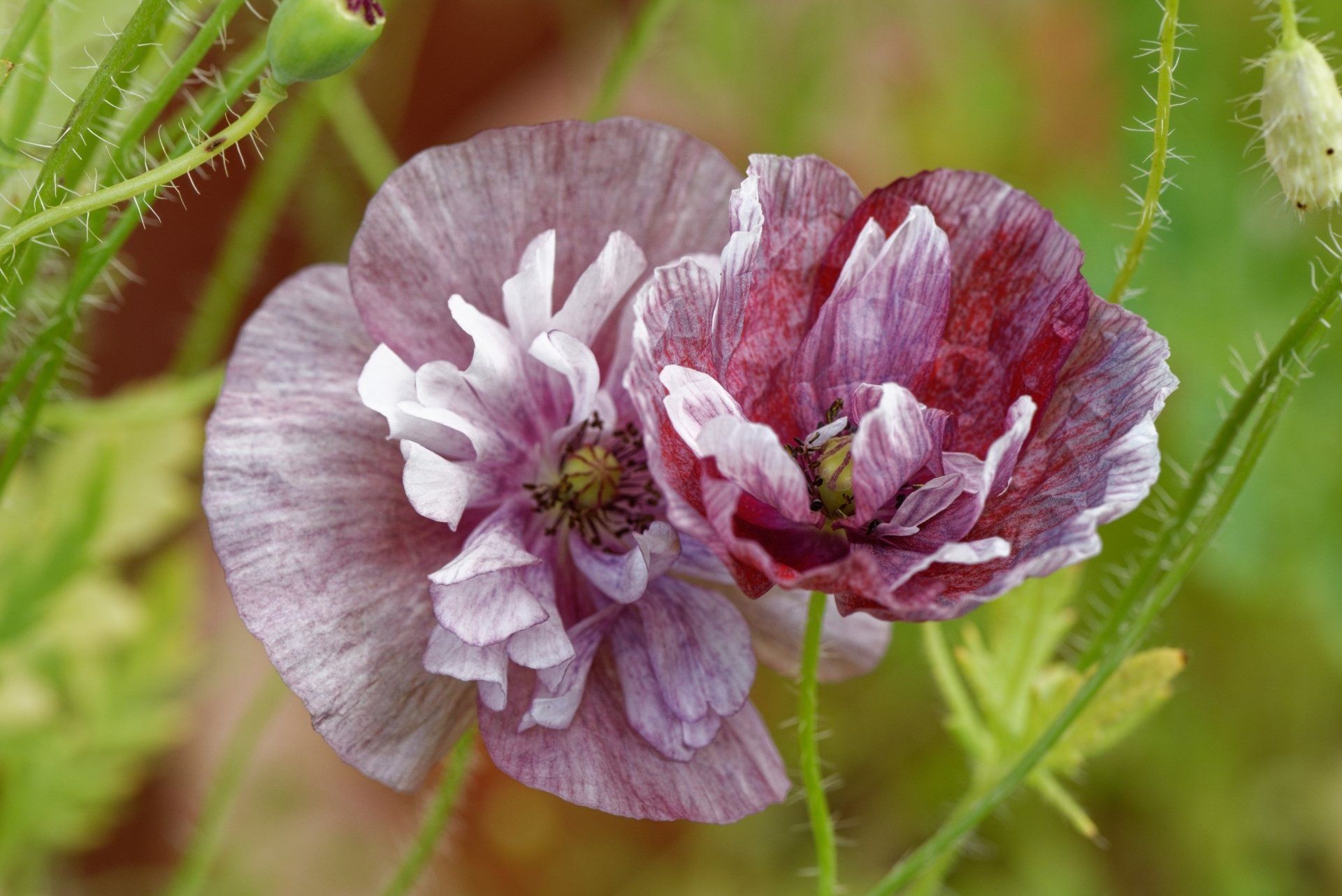Poppy
KEY INFORMATION
Height: to 90cm
Spread: to 25cm
Hardy annual
Full sun
Germination: 7 - 14 days
VARIETIES AVAILABLE FROM COLLIE FLOWERS
SOWING & GROWING SCHEDULE
Sow Indoors: n/a
Sow Outdoors: March to May, or September to October
Plant Out: n/a
Blooms: May to August

Growing Guide
A sprinkling of scarlet red blooms among swaying meadow grasses creates the perfect picture of the British countryside. The iconic wild poppy is instantly recognisable by its gently fluttering petals.
Poppy is the common name for plants in the Papaveraceae family. Within this group there are annuals, perennials and biennials. They include oriental poppies, field poppies Welsh poppies and Himalayan poppies. Their summer flowers may be fleeting but they make a wonderful addition to the garden. Large-flowered oriental poppies are the most popular poppy to grow. They have hairy flower stems and foliage. Flower petals can be ruffled, crimped or shaggy, and range in colour from white to pink, purple and red.
Direct sow Poppy seeds outdoors where they are to grow in spring or autumn. Choose a position in full sun on fertile, well drained soil which has been raked to a fine tilth. Sow seeds thinly, just below the soil surface. Water the ground regularly, especially during dry periods. When seedlings are large enough to handle, thin them out to 30cm apart.
TOP TIPS
Most poppies thrive in moist but well-drained soil in full sun. Field poppies and opium tolerate drier, poorer soils than oriental poppies, while Himalayan poppies do best in moist, slightly acidic soils, in partial shade. For most species, deadhead spent blooms to prolong flowering. Most poppies come true if propagated by seed but oriental poppies should be propagated from root cuttings.
Poppies are rarely planted in containers and perform much better in the garden.
Poppies rarely suffer from pests or diseases. However, oriental types can be set back by powdery mildew. This is a fungal disease that affects the whole plant. Leaves and stems are covered in a white mildew in spring or summer. In very bad cases, cut the plant back to ground level and clear away fallen leaves to prevent the fungal disease from overwintering in the soil.
Opium (somniforum types) poppies can self-seed too readily in the garden, and become a nuisance. If opium poppies are out-growing their space, make sure you deadhead spent flowers to prevent the plants from setting seed.
If you’re growing poppies for culinary use, the opium (somniforum) poppy is a good choice. The seeds can be eaten and are used for adding extra flavour, crunch and bite to breads and cakes. Be careful, as the seeds of many other poppy species are not edible. Also, you must not consume any other part of a poppy plant – they’re poisonous.
